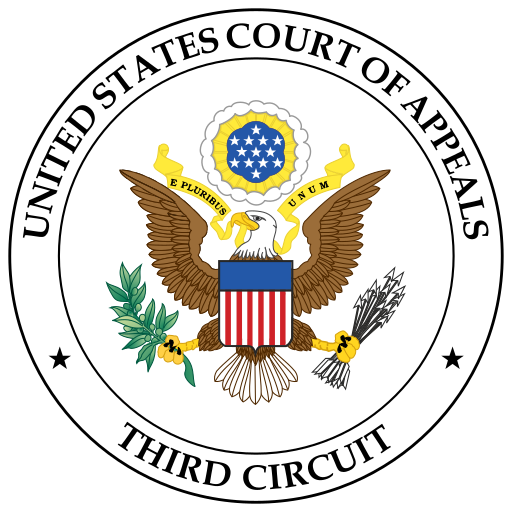One of the most basic estate planning technique for someone likely to have a taxable estate is regular annual exclusion gifts. That’s the amount you can give to each person without it counting against your unified credit. In 2023 the amount is $17,000. You can give $17,000 to each of your kids, each of your grandkids, each of your nephews and nieces and so on. There are some technical issues like about whether your gift is a gift of a present interest, but if all you do is mail them a no strings attached check that stuff does not come up. What can go wrong?
The Estate Of William Demuth
Well Donald Demuth, executor of the Estate of William Demuth (his physician father) found out what can go wrong. If you die before the check hits your bank account, it may not count as a completed gift. That’s the position that the IRS took on the checks that Donald Demuth wrote for his father under his power of attorney on September 6, 2015. Of eleven checks, only one had been deducted from Dr. Demuth’s account when he died on September 11, 2015. Donald, the executor, adjusted the balance for them in reporting the value of the account on the estate tax return, IRS disagreed and determined that the estate owed an additional $179,130. The Tax Court agreed with the IRS and the Third Circuit Court of Appeals backed them up.
Why the IRS and the courts took this seemingly nonsensical position given that all the checks cleared within a few days after Dr. Demuth’s death is of some interest. More interesting to me anyway is how it might cause us to reflect on mortality and adopting habits that might make unpleasant surprises like this less likely. We have here an instance supporting Reilly’s Fourth Law of Tax Planning – Execution isn’t everything, but it’s a lot.
The Check Is In The Mail
There are a couple of tasteless jokes that include the expression “The check is in the mail”. If you have ever been involved in collecting receivables you are familiar with the concept and don’t find it amusing. Of course if you are “managing payables” it can be a little funny. Here the question is whether mailing somebody a check constitutes a “completed gift”. For a gift to be complete a donor has to have “parted with dominion and control as to leave him no power to change its disposition”.
In order to answer the question thoroughly it was necessary to dig into state law. Pennsylvania, where Dr. Demuth was, requires that for an inter vivos gift to be valid there must be “a clear satisfactory, and unmistakable intention of the giver to part with and surrender dominion over the subject of the gift, with an intention to invest the donee with the right of disposition beyond recall, accompanied by an irrevocable delivery, actual or constructive”. Mere delivery of a check does not complete a gift. That is because under Pennsylvania law the drawer of a check can stop payment on it. As long as that power continues the gift is not complete.
It is conceivable the answer might have been different in some other state, although I don’t rate that highly likely. Really the thing to do is think about how to avoid situations like this and I think I have the solution, but you will need to bear with my observations on mortality.
Contemplating Mortality
In Chapter 7 of Moby Dick the narrator, Ishmael, about to sign on to a whaling voyage visits the Whaleman’s Chapel in New Bedford, which is based on the Seamen’s Bethel which is still there. He contemplates the cenotaphs, which line the walls and look much like gravestones and reads “SACRED TO THE MEMORY OF JOHN TALBOT, Who, at the age of eighteen, was lost overboard, Near the Isle of Desolation, off Patagonia, November 1st. 1836.
Having lived the much softer life of public accounting, I have come up with a different way of contemplating mortality. I will load Table2010CM (available here) into excel and starting fooling with the numbers. The Table forms the basis for actuarial computations to value annuities and the like. It is just two columns of numbers Age and lx which I would call lives I guess. Sometimes I think if I had gotten better guidance in high school I would have become an actuary, but I am largely self-taught. At any rate we start with 100,000 at Age 0 and start working our way down. It is slow at first. It is age 19 before we get below 99,000. And we are not below 90,000 till age 59, when you can celebrate with a penalty free distribution from you IRA if you are not in the unlucky 10%. The pace starts picking up. It only takes ten years to lose another 10,000 and five years to lose the next 10,000 leaving us with 69,175 at age 75. At age 109 there are 15 left and they all die. Nobody gets out alive.
I sometimes need to withhold the insights I get from Table2010CM. I have among my facebook friends roughly forty members of my high school graduating class. In the course of a year reports will circulate about the passing of one of our classmates and amazingly there are people still acting surprised. What would be surprising is a couple of years going by without anybody from the Class of 1970 which had over 220 graduate dying. The Table tells me to expect 3 or so every year.
So what does this tell us about how to execute on a plan of regular annual exclusion gifts?
Do It In January
According to the opinion the regular annual exclusion gifts made from Doctor Demuth’s account started in 2007. They were usually made in December. In 2015, reports of his deteriorating condition caused Donald to accelerate the gifts into September. The question is. Why not make the gifts in January? And an added wrinkle this being the 21st century, why mail checks? It’s in the family. You should be able to get their bank account information and make electronic transfers.
In over forty years of practice, this has never crossed my mind. And I have never heard anybody recommend it, but I am now passionate about it. I have reached out to #TaxTwitter and will let you know the results. If you hurry you might still have time to vote.
Annual exclusion gifts should be made in early January by electronic transfer. Who will die on this hill with me?
— Peter Reilly (@peterreillycpa) July 17, 2023
————————————————————————————————————————————————————————————————
Originally published on Forbes.com.
For great value continuing professional education. I recommend the Boston Tax Institute

You can register on-line or reach them by phone (561) 268-2269 or email vc@bostontaxinstitute.com. Mention Your Tax Matters Partner if you contact them.
For articles oriented toward tax professionals check out Think Outside The Tax Box.
































































































